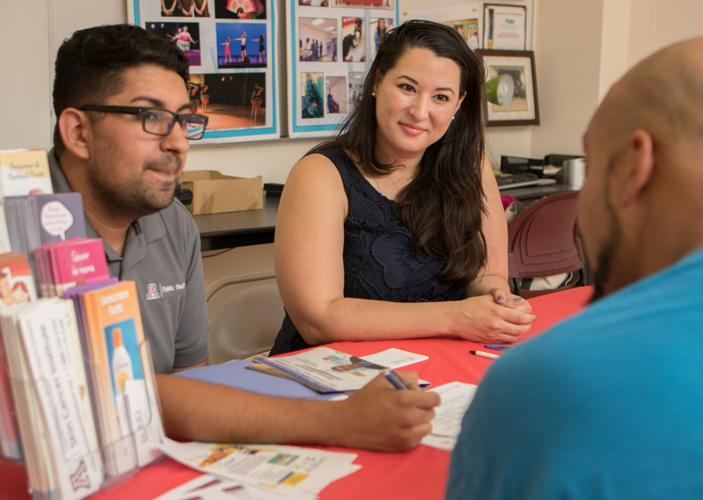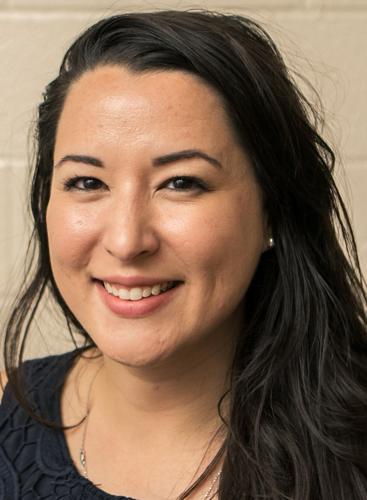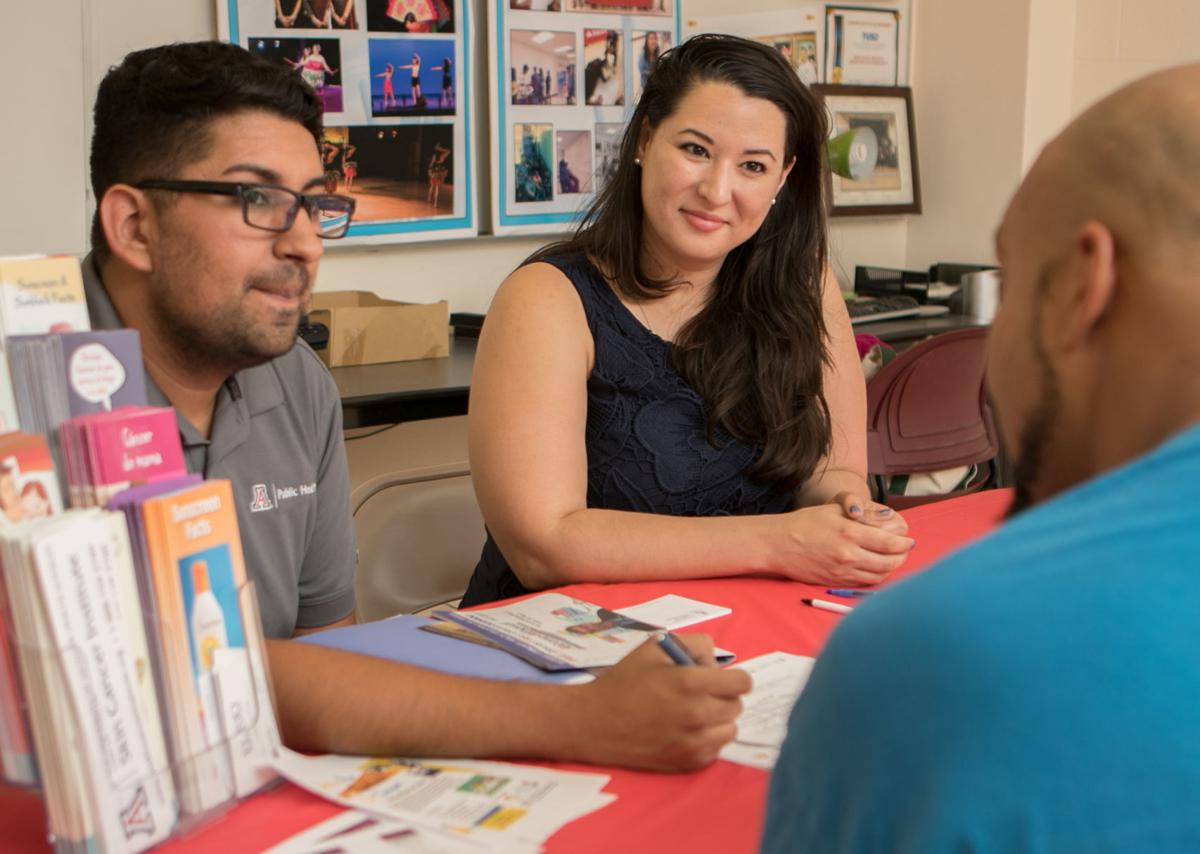When Celina Valencia began her application process to the University of Arizona, she went to her Sunnyside High School counselor for an endorsement. Should be a cinch, she thought, since she had taken advanced courses and earned credits at Pima Community College.
Not so.
“She told me ‘for people like you it’s a waste of money to go the UA,’” Valencia recalled. The counselor added a few more words that struck Valencia like a dagger in her back: “You’re just gonna drop out.”
How many times have students, from ethnic minority families, heard condescending, insulting words like those uttered by Valencia’s high school adviser? How many young people, eager to advance, have had to face denigration from people supposedly in their corner?
Too many.
Valencia said she persisted, asking the counselor to sign off on her college application. The counselor relented, she said, and Valencia went off to the UA.
That was 17 years ago.
In May, the Nogales native, clad in a salmon pink hood and dark blue gown, walked across the Centennial Hall stage to receive her degree: a doctorate in public health management and policy.
The degree, the one that her counselor predicted would be a waste of money and time, did not come easy, however. After she began her graduate work in August 2013, her partner and father to their son died. And after her partner passed away, Valencia and her son were homeless for about 18 months, as she moved from “couch to couch,” all the while pursuing her degree and caring for her son.
Her drive to complete her degree left her principal adviser and grad school mentor in awe.
“Little did I know the adversity she was undergoing and overcoming with such resilience during her tenure; especially in an academic program that demands so much energy and is very challenging at times,” Dr. Cecilia Rosales, associate dean and professor at the University of Arizona Mel and Enid Zuckerman College of Public Health, Phoenix Campus, wrote to me in an email.
This resolve, these ganas, Valencia attributes to her borderlands’ upbringing. She grew up in Ambos Nogales, on both sides of the line, overcoming barriers and borders. There were language hurdles and financial ones. When she was young, her father, a veteran of the Vietnam War, was diagnosed with cancer related to Agent Orange, the defoliant chemical that the United States freely used in South Vietnam.
Despite the challenges in her youth, Valencia lived within the comfort of a deep culture that focused on tight-knit family bonds. In the frontera way of life, Valencia found strength and developed her inner moxie that would, unknown to her at the time, take her beyond what she or anyone could have imagined then.
When she faced uncertainty and a possible end to her academic goal, Valencia would have none of it. She clearly saw the promise of a better life for herself and her son with her graduate degree financed by student loans, work, fellowships and scholarships.
“My momma bear kicked in. I had to provide for him,” said Valencia, 34, a 2017 Clinton Global Initiative Fellow in Public Health and Infectious Disease.
“Quitting was not an option.”
She also had academic guardian angels who kept her focused and rallied support. One of them was Maria Teresa Velez, who was associate dean of the UA’s Graduate College, who died in 2016. It was Velez who grabbed hold of Valencia and told her to apply for graduate school. Two other angels were Paloma Beamer, an associate professor in the College of Public Health, and Andrea Romero, a UA professor in Family Studies and Human Development.
At any time during her academic quest you could have understood had she chosen to give up school.
Like when her father died in 2012. It was a blow, but his death began to spur on her interest in public health, specifically epidemiology.
“I saw the world in a whole other way,” she said in an interview early last week.
And certainly no one would have questioned her had she dropped out of her graduate program in 2014 after her partner died of Lou Gehrig’s disease, which left her and her 1-year-old son without a home and relying on the generosity of family and friends.
With a friend’s help, after she began working, she found an apartment, diminishing much of her stress.
Valencia and her son will soon relocate to Phoenix, where she’ll continue her work on a postdoctoral fellowship with the UA’s College of Public Health. Academia awaits her.
But also awaiting her are the young Latina students, who, like her, were told not to bother thinking about college. She sees herself in them, fighting self-doubt and insecurities about their capabilities. Valencia will tell them her story and help them tear down their barriers.
“I want to be the Chicana professor that other students of color can see that they can do it, too,” Valencia said.







